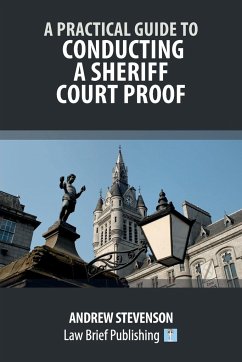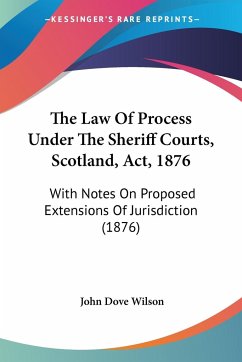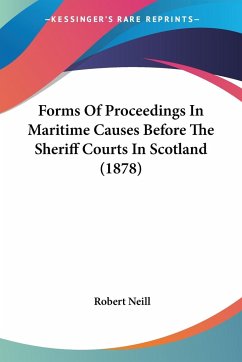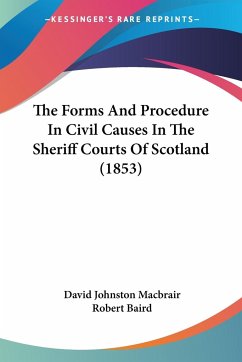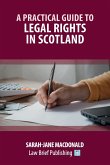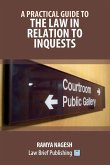This book is a practical guide to conducting a proof in the sheriff court, based on the author's thirty years of experience of presenting evidence at proofs and hearings in the sheriff court, the Court of Session and before tribunals. The guide highlights the importance of risk management in an area of law that is fraught with hazards concerning costs, timescales and adverse outcomes. It also identifies many useful steps that ought to be taken with a view to minimising such hazards and making the process of conducting a proof as smooth and as painless as possible. Although the book is aimed primarily at practitioners it describes the practical application of the law of evidence, an area which will interest academics and students. The guide deals with managing clients, advice on preparation and how best to cover your back in this perilous area of practice. Although reference is made to court rules and textbooks the book is first and foremost a practice guide. ABOUT THE AUTHOR Andrew Stevenson S.S.C. is a practising solicitor advocate at Waddell and Mackintosh, Troon. He has undertaken many hundreds of proofs across Scotland since 1992 in virtually all areas of litigation and has long experience of acting as a commissioner to recover evidence in sheriff court actions both civil and criminal. Andrew is a former President of the Glasgow Bar Association and he is currently Secretary of the Scottish Law Agents' Society. He is also a committee member of the Society of Solicitor Advocates. Andrew has written extensively on civil procedure and gives seminars on proofs and litigation. He is a contributor to Greens Litigation Styles. He is a regular columnist for The Scotsman and is a vice convenor of the Discipline Tribunal of the Church of Scotland. He is the author of Style Writs for the Sheriff Court, Bloomsbury 2023. CONTENTS 1. Introduction 2. Risk Management 3. The Capacities in Which You Are Acting 4. Officer of the Court 5. Acting as Direct Agent for a Litigant 6. Acting as an Agent for Another Solicitor 7. Acting as an Employee 8. Recipient of Third Party Funding 9. Risk Management: How to Avoid Having to Conduct a Proof 10. Points to Attend to When the Proof Is Being Assigned 11. Modes of Proof 12. Managing the Evidence That You Need to Succeed at a Proof 13. Intimating and Lodging Lists of Documents, Witnesses, Affidavits and Productions 14. Practical Steps to Make Life as Easy as Possible on the Day 15. Using Evidence at the Proof; Witnesses 16. Adducing Objective and Not Subjective Evidence 17. Calling Witnesses 18. Credibility Versus Reliability 19. Objecting to the Opponent's Questions 20. Cross Examination 21. Judicial Knowledge 22. Ordinary Cause Rules on Running a Proof 23. The Law of Evidence 24. Running a Hopeless Proof 25. If the Proof Is Lost 26. Conclusion Bibliography
Hinweis: Dieser Artikel kann nur an eine deutsche Lieferadresse ausgeliefert werden.
Hinweis: Dieser Artikel kann nur an eine deutsche Lieferadresse ausgeliefert werden.

